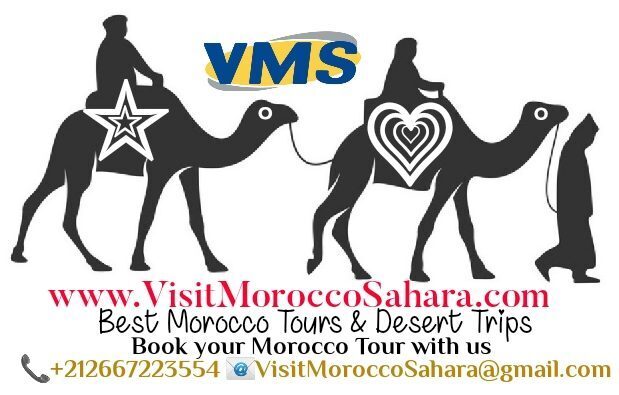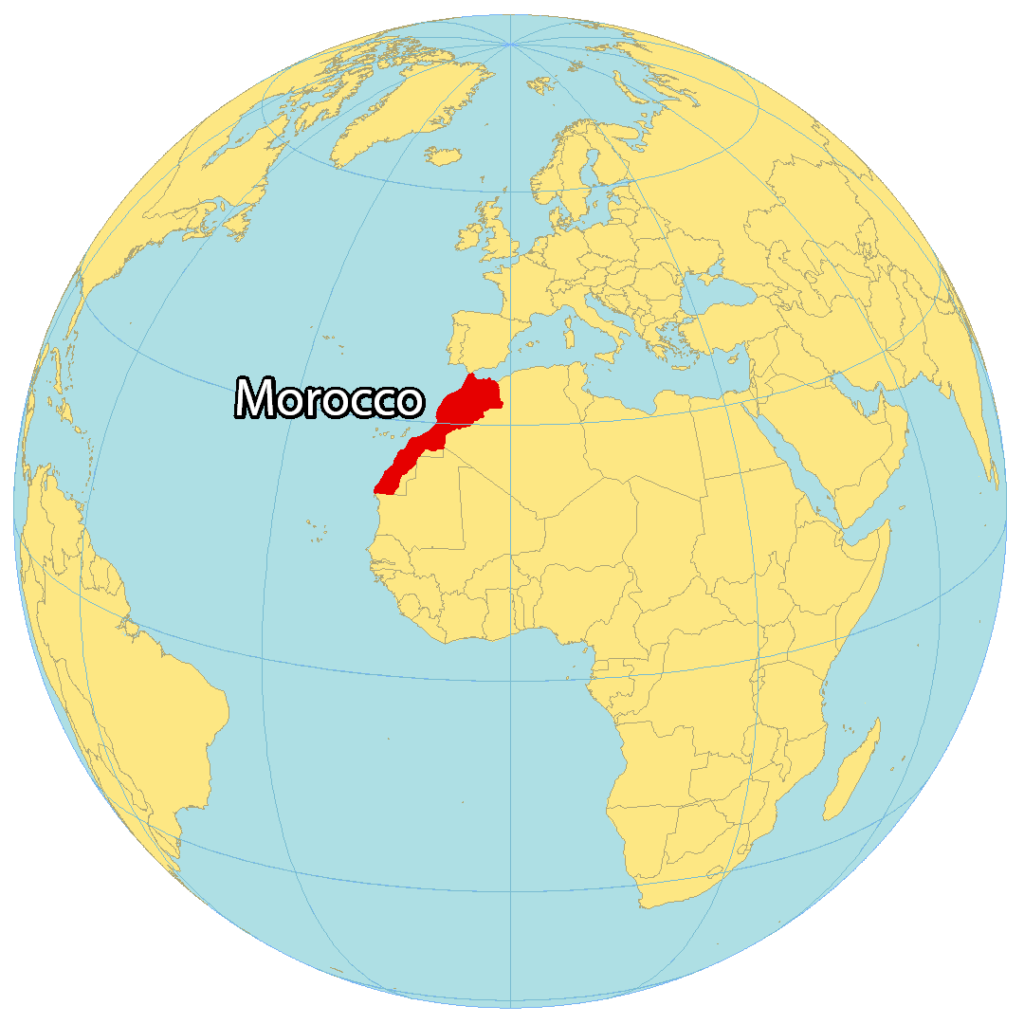
Is Morocco safe to travel? Morocco has seen a huge rise in foreign visitor numbers in recent years, as many tourists are looking for an adventurous, and unique travel experience. When travelling to a country that ticks these boxes, other aspects, such as public safety and societal norms, may be different to what you’re used to.
Is Morocco safe to travel?
Morocco is a safe country to travel, to as long as you understand its laws and cultural customs, and adhere to the status quo. Its crime rates are relatively low but be aware of scam artists and pickpockets, which can be common in Morocco.
Is Fes, Marrakech and Essaouira safe?
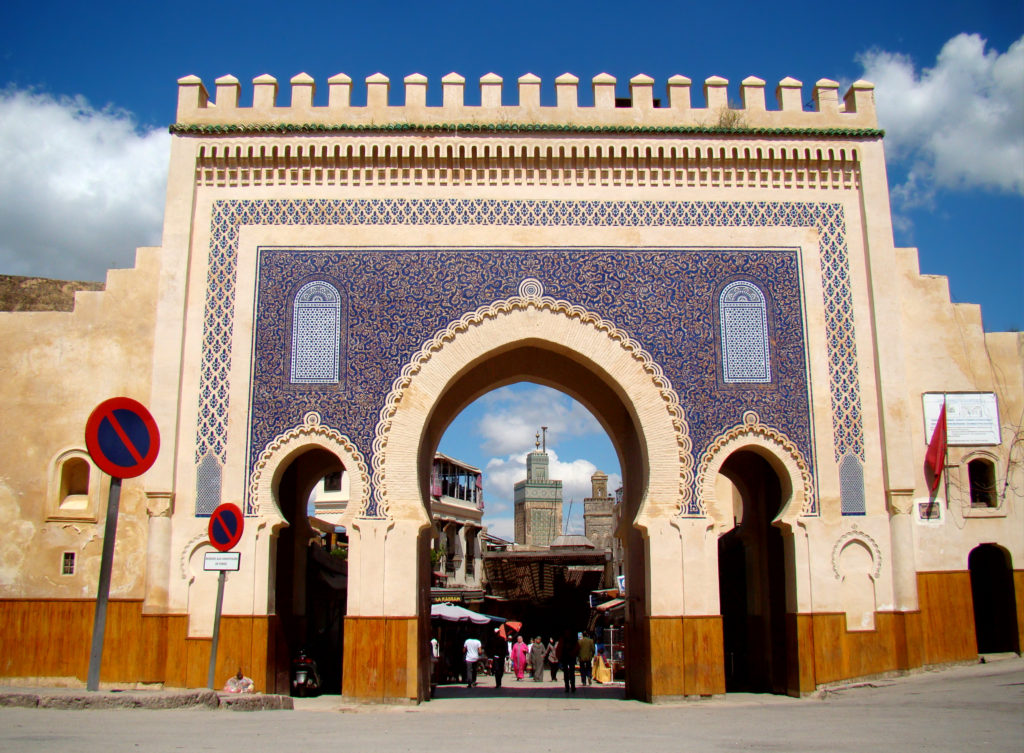
Bab Boujloud is one of the most beautiful gate in Fes city
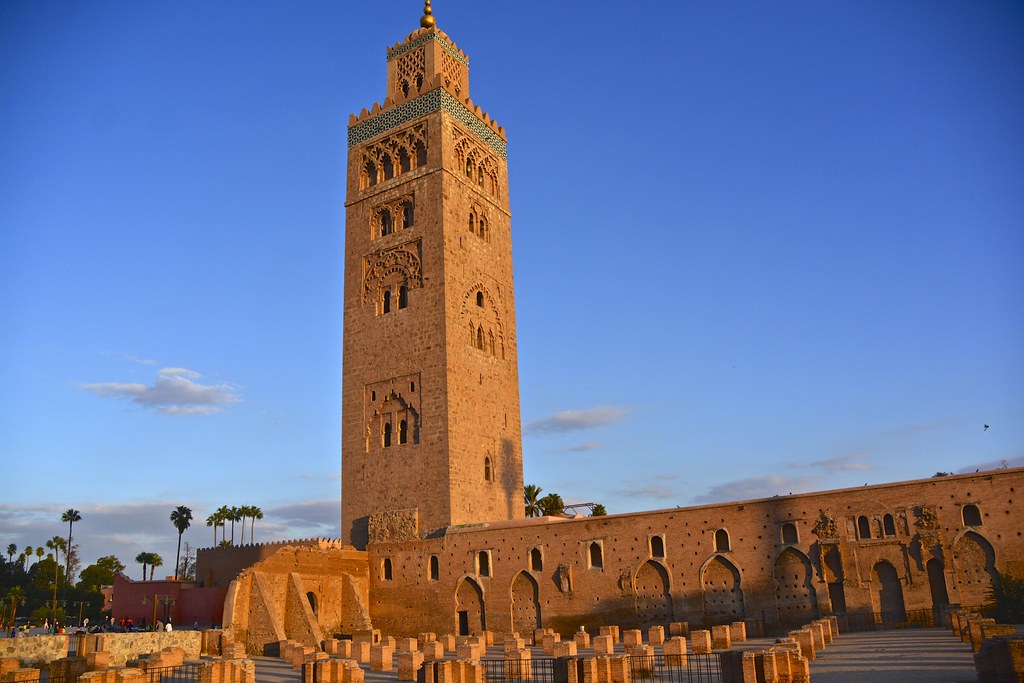
The Koutoubia Mosque is the largest mosque in Marrakesh
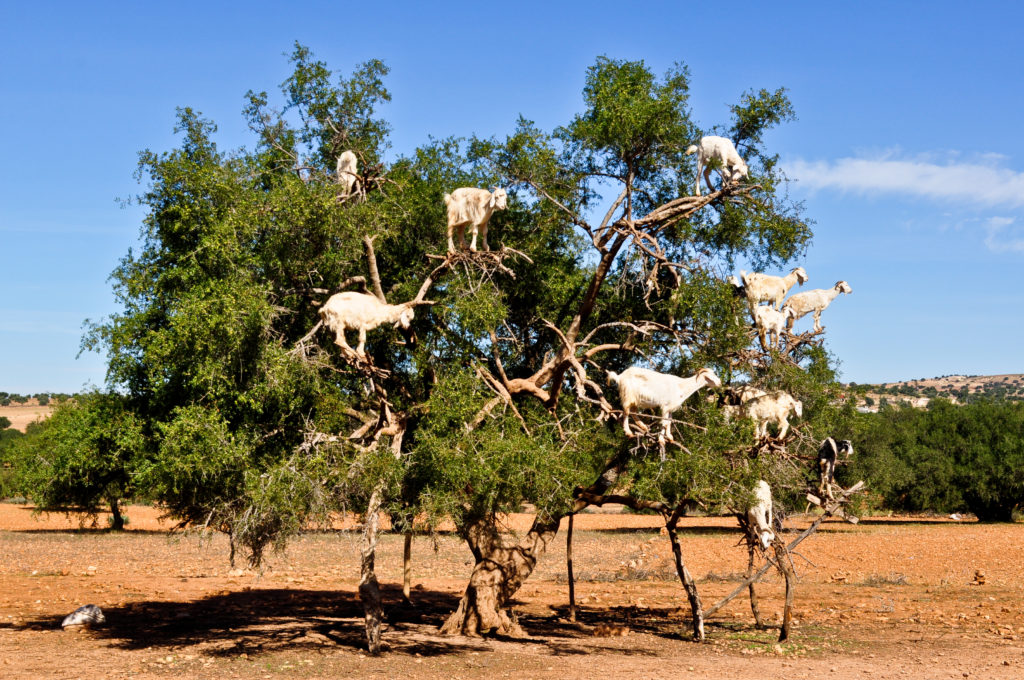
Goats on an argan tree near Essaouira
Tourist hotspots, like Marrakech, Fes and Essaouira, are considered safer than rural and remote regions. Like the Atlas Mountains as they see tourists regularly, but unique challenges and threats are present for many people, across the country. Morocco is a conservative Islamic country, so if you are a solo traveller, a female traveller and/or a person who identifies as LGBTQIA+, you may face extra challenges. It is important, whoever you are, to be extra diligent when travelling through Morocco, to understand the risks that you may face and know how to avoid or deal with them.
Safety in public places is Morocco safe to travel?
Much of Morocco’s economy is dependant on tourism, and many locals have decided to prey on visitors, with scams and ‘tourist traps’ that can catch even a seasoned traveller by surprise.
Petty crime and pickpocketing is a common problem in Morocco, especially around souqs and medinas. Keep your valuables safe by carrying small amounts of cash, not wearing expensive jewellery, and keeping money or valuables out of sight and easy-to-reach pockets. When purchasing goods at markets, be prepared for aggressive begging and selling tactics from vendors, especially if they are aware that you have a lot of cash on you. An aggressive approach to begging is also quite common around ATMs in tourist hotspots. Above all, leave your passport and spare cash locked securely in your hotel safe.
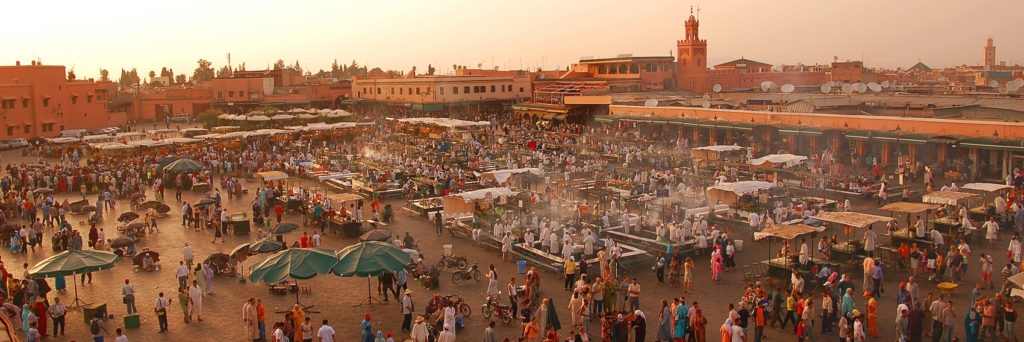
Jemaa El Fna square in Marrakech
stay in safety is morocco safe to travel?
When sightseeing around tourist hotspots. In Morocco’s main towns and cities, you may come across people who say they are official ‘tour guides’, or a ‘helpful local’. Be wary of these services–there are many unlicensed tour guides, especially in Fes and Marrakech, who will offer to take you–at an inflated price–to establishments. Where they make commission on any purchases made. Do your research on city tours, and if you do get approached on the streets, be firm and direct in declining their offer. Sometimes, they may still demand payment, even if they just followed behind you. For a section of your sightseeing. They may say ‘no money’, but they’ll want to be paid.
Taxis in Morocco, like many countries around the world, are often a tourist trap. When travelling by taxi in Morocco, always negotiate a price up front, as many drivers will inflate the price. Substantially when you arrive at your destination.
Safety for LGBTQIA+ travellers
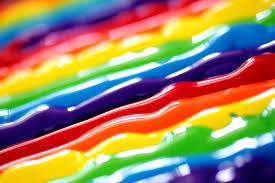
Morocco is not a safe destination for LGBTQIA+ travellers who wish to openly express sexuality and/or gender identity outside of a very rigid, heterosexual binary. LGBTQIA+ travellers who want to visit Morocco should exercise caution and avoid engaging in even mild public displays of affection such as hand-holding.
Safety for solo female travellers
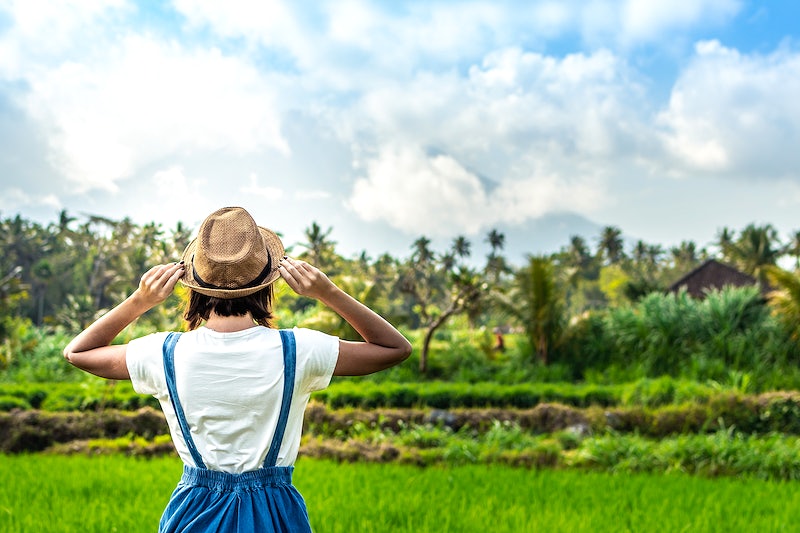
In many areas of Morocco, particularly at night, women may feel uncomfortable, with the approaches or attention from locals. Unfortunately, verbal harassment on the streets is relatively common in Morocco. And women can be specifically targeted, if walking alone at any time of the day. Female travellers, especially if by themselves, can attract unwanted attention from men on the streets. And have an increased chance of being followed, accosted and sometimes assaulted. If possible, travel in groups of three or more and keep to well-lit streets when on the move.
Is morocco safe to travel?
Part of Visit Morocco’s travel ethos involves, respecting local cultures and sensibilities. In Morocco, it is important to be more conservatively dressed than what you may be used to, especially in and around religious sites, such as mosques. Consider clothing that covers the knee and shoulder for day-to-day travel, and when visiting mosques, ensure that your clothing covers elbow to ankle. It’s also important to cover your hair with a scarf.
Is morocco safe to travel?
It’s a good idea to be cautious even when in private spaces in Morocco. At your accommodation, lock your door even when you are inside, and avoid being alone in your room with hotel staff. If hotel staff need access to your room for any reason, for your safety, request they attend to the issue while you are out, or wait at reception while they complete any cleaning or repairs. Ensure your valuables are all accounted for and either kept on your person, or locked securely in your hotel safe. When you leave the hotel, take a hotel card with you so you know the address and contact numbers.
Tips for staying safe in Morocco
Travel as a small group when walking and sightseeing, especially at night.
Lock away your valuables.
Do your research on city tours and rural stays.
Respect local dress codes and customs.
Avoid drinking the tap water.
Is the water safe to drink in Morocco?
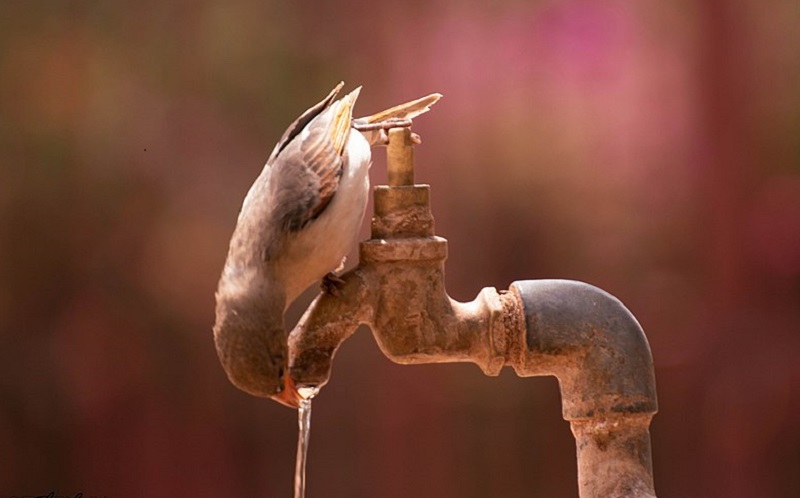
Generally speaking, it’s probably best to drink filtered or bottled water when travelling in Morocco. Most locals will drink tap water and many travellers may take the risk, but you wouldn’t want a stomach bug to stop you, from having a good time in a new country.
Is the water safe to drink in Morocco?
In the major cities in Morocco, the tap water is chlorinated, and will usually cause no harm, but it’s still wise to either purify this water yourself or choose another water source, as your body may react to unfamiliar bacteria in the water, causing sickness or diarrhea. Brushing your teeth with this water should be fine. In remote or rural areas, stick to treated water, by either filtering or purifying it yourself, or purchasing a large bottle. It’s also advisable to avoid raw vegetables, fruits with edible skins, salads and drinks with ice. Opt for cooked foods and fruits that need to be peeled instead.
Is the water safe to drink in Morocco?
Hot beverages in Morocco are usually fine to drink, as boiling water should kill, off any harmful bacteria in the tap water. If you wish to drink iced tea, however, it is best to check if this has been made using filtered water.
For environmental reasons, try to avoid buying bottled water. Bring a reusable bottle or canteen (we recommend at least a 1.5-litre capacity). That can be refilled and filtered as needed. Some hotels you’ll stay at may have drinking water available. Your local leader can tell you where to find filtered water, or you can bring purification tablets.
Morocco travel FAQs
Do I need a visa to travel to Morocco?
MOROCCO:
Australia: No – Not required
Belgium: No – Not required
Canada: No – Not required
Germany: No – Not required
Ireland: No – Not required
Netherlands: No – Not required
New Zealand: No – Not required
South Africa: Yes – in advance (in general, visa processing can take approximately 20 working days)
Switzerland: No – Not required
UK: No – Not required
USA: No – Not required
Visas are the responsibility of the individual traveller. Entry requirements can change at any time, so it’s important that you check for the latest information. Please visit the relevant consular website of the country, or countries you’re visiting for detailed and up-to-date visa information. Specific to your nationality. Your consultant will also be happy to point you in the right direction with acquiring visas. Visas can take several weeks to process, so familiarise yourself with any requirements. As soon as you have booked your trip to allow for processing time. Australians, New Zealanders, Canadians, Americans and British citizens do not require a visa to visit Morocco for stays up to 90 days. All other nationalities should check with the Moroccan Embassy or Consulate in their country, for up-to-date visa information.
Is tipping customary in Morocco?
While tipping isn’t mandatory in Morocco, rounding up the bill and leaving spare change at restaurants and cafes is generally standard practice. Taxi drivers and porters will also accept tips, 20 dirham is usually sufficient in this case.
What is the internet access like?
Morocco’s cities have internet access available in internet cafes and hotel lobbies. In some cases, free Wi-Fi can be accessed in public places. Less internet access is available in rural areas, so be prepared to ‘disconnect’ when travelling out of Morocco’s big cities
Can I use my mobile/cell phone while in Morocco?
Mobile phone coverage is generally very good in Morocco’s cities and metropolitan areas, although expect limited coverage in remote or mountainous areas. Ensure you have global roaming activated with your carrier if you wish to use your phone while in Morocco.
What are the toilets like in Morocco?
Morocco’s toilets are a mixture of modern flushable toilets, and squat toilets, so be prepared to encounter both. Carry your own supply of toilet paper and soap, as these aren’t always provided.
What will it cost for a…?
Mint tea = 5-10 MAD
Fresh juice = 10-15 MAD
Basic meal = 50 MAD
Expensive meal = 150 MAD
Are credit cards accepted widely in Morocco?
Major credit cards are accepted by most large shops, hotels and restaurants, although smaller vendors and market stalls often only accept cash.
What is ATM access like in Morocco?
ATMs are easily found in the large cities and airports, although are less common in rural and remote areas. When travelling out of the city, be prepared by having enough cash, as ATMs aren’t always an option.
What public holidays are celebrated in Morocco?
11 Jan Independence Manifesto Day
1 May Labour Day
26 Jun Aid al-Fitr / End of Ramadan
30 Jul Throne Day
14 Aug Oued Ed-Dahab Day
20 Aug Revolution Day
21 Aug HM Mohammed VI’s Birthday
1 Sep Aid al-Adha / Feast of Sacrifice
22 Sep Islamic New Year / Muharram
6 Nov Green March Day
18 Nov Independence Day
1 Dec The Prophet’s Birthday
Is Morocco a safe destination for LGBTQIA+ travellers?
We recommend LGBTQIA+ travellers exercise discretion when travelling in Morocco as homosexuality is not widely accepted in the community. Homosexual acts (including kissing) are illegal in Morocco and can attract a fine or even a jail sentence for offenders. That said, some towns (such as Marrakech and Tangier) are considered more gay-friendly than others. As long as travellers use discretion and avoid public displays of affection, travel in Morocco should not be a problem.
How do i get to sahara desert tour?
there are several ways to travel from Marrakech, Casablanca, Fes and Tangier to sahara Desert. click here read more
